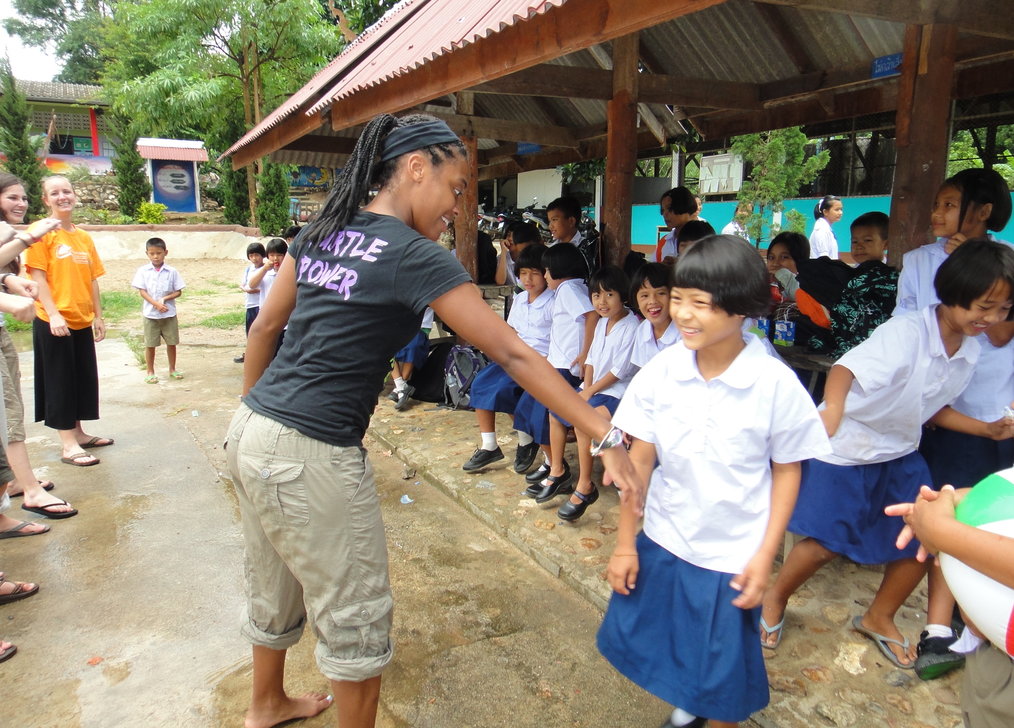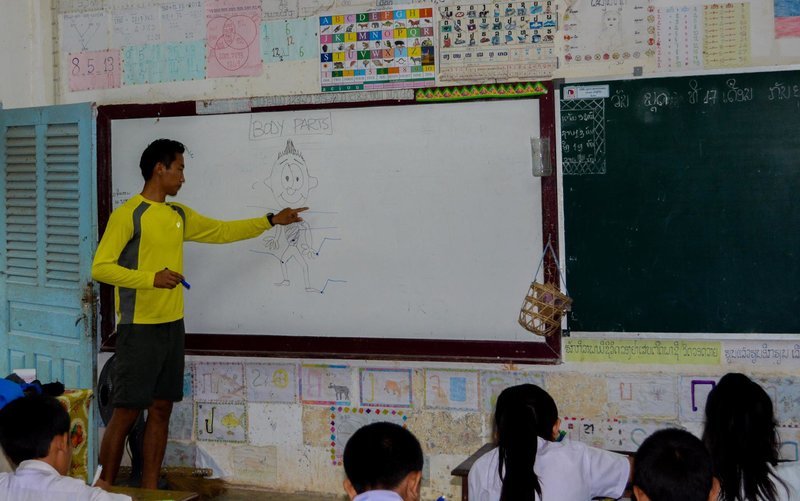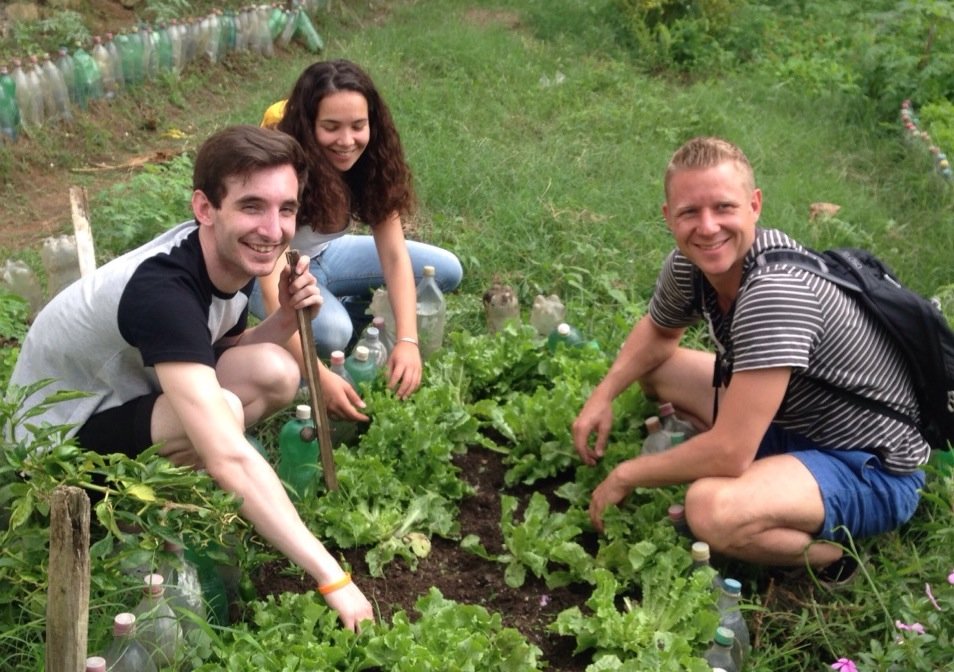Answer These Questions to be the Most Responsible Volunteer Abroad

Picking a volunteering project from the myriad options sprouting up across the globe has never been more difficult. You can feel hard pushed trying to narrow down your options, particularly when it comes to deciding if an organization has the credentials to prove the impact it’s having -- and that’s before you even consider whether the role will actually suit you and your volunteering goals.
Don’t get lost down the rabbit hole of volunteering placements; instead, these six questions to ask about the program -- and yourself – before you volunteer can streamline the decision-making process and help you identify the projects that really merit your time. Use the answers to these questions as a guide to help you choose the volunteer abroad project that's right for you.
How Does the Volunteer Organization Use Local Expertise?
When I volunteered in Bolivia for an education charity, I remember visiting their first library. It was located in a tiny village in the highlands near Sucre, Bolivia, and had been operating since 2005. There was nothing that distinguished it from the others that we ran; it had books, a computer and a seating area for the children and community members who used it. Instead, the most important fact was that it still existed at all.
The director of the NGO, who was a previous inhabitant of the village, told me the tale of another charity that had started around the same time. They had spent nine years in the community, working on health projects such as building toilets to replace the open-air latrines that had previously been used. But when the organization finally left, these brand-new toilets were abandoned, instead, the families who lacked clean sanitation facilities turned them into storage spaces.
Unfortunately, this isn’t an isolated incident; organizations that go into communities with little knowledge of the subtleties of the culture (which can vary from region to region or even between neighboring villages) are far more destined to fail in their aims, regardless of how long they work with that community.
To be part of a truly effective project, look for information on the program’s website about the types and roles of local people involved in the in-country operations to get a sense of how they leverage community knowledge and how successful their work is as a result. It really makes a difference and means your own immersion in the culture will be substantially deeper too.
Are You "Qualified" for the Volunteer Abroad Project?

Photo by: Herbert Y., UBELONG
In our eagerness to volunteer, many of us shy away from a fundamental question: are we even suitable for the role. To determine the answer, three simple questions come into play: Could you do the job at home? Do you have the necessary qualifications? If not, can you learn?
Everything from teaching to childcare, to building walls requires a certain compliment of skills and while many of these can be learned, particularly if the program offers pre-departure or in-country training to get you up to speed, some cannot. Check the requirement of the program; if you plan on working with children and aren’t required to get some sort of background check (a pre-requisite for similar roles in most countries) then it’s time to seriously start questioning how the organization is safeguarding the children in their care.
Similarly, if the demands of the project require you to be leading classes in a school teaching English and yet you’ve never taught a class before, think carefully about taking on the role or at least study up for a TEFL. The more qualified and empowered you are to make a difference, the better the experience will be for yourself and the people you work alongside.
Don’t forget that sometimes you can be over qualified for volunteering too. When I worked as an English teacher in Bolivia, I realized how easy it was to fall into the trap of replicating what I’d do at home in my own classroom, despite the context and the children being completely different.
Be mindful of the challenges of your new way of working and look to learn from local people. Their understanding of the subtleties of the culture are invaluable.
How Much Time Will the Organization Invest in You?
While it’s important to check out the demands of the project and clarify expectations in terms of how long you’ll be working each day and how much time you’ll get off, another important question of time is what will be invested in you.
Both of the previous questions feed into how much you get from a project. In many ways, volunteering is as far more about the cultural exchange and your learning than the impact you have as an individual, something that’s intrinsically linked with reciprocity.
Whether you’re volunteering as a way of developing skills that will benefit you in your future career or your reasons are simply a desire to help do some good in the world, knowing that it aims to benefit both volunteer and community in equal measure can result in a far more worthwhile experience for all.
Look out for projects offering training and where you’ll get a chance to work alongside local people and learn from them, about their culture, their country and their way of life, rather than just alongside other volunteers, for a truly perspective-changing experience.
Does the Volunteer Abroad Project Prove Positive Impact?

Photo by: Daan D., Excellence Center
Program websites might be full of photographs of smiling volunteers and equally toothy children, but another important aspect to consider before committing to a project is whether they can prove the actual impact that all their volunteers’ time (and probably a considerable amount of money) is having.
I’ve come across a few projects where impact evaluation is barely an after-thought and where, despite ploughing thousands of dollars annually into the work, they can’t be sure exactly who is benefitting from all the hard work of the international and local volunteers.
If there’s no system of monitoring and evaluation in place, how can they show to volunteers and well-meaning donors exactly where the money is going and what it’s helping to achieve? Be mindful of this as you compare programs -- then you can choose a program that you know will have a positive impact.
Who Can You Expect to Meet?
I’ve volunteered abroad in a range of contexts, as part of a group of international volunteers and as the only foreigner in an office of local people. The former was far easier; surrounded by like-minded, similarly aged individuals from a range of English-speaking countries, it was far easier to settle into my new city and feel comfortable in the placement.
But the latter taught me vastly more about the country, where I worked alongside fearless, intelligent women in a culture where, due to the prevalence of machismo, opportunities to meet and learn from other women are limited. It was a far more powerful, formative experience as a result.
The more you research programs, the more you’ll realize that a lot of programs recruit a certain type of volunteer – a fact not that surprising given the high costs often associated with volunteering.
Working alongside people from all ages, countries and walks of life generates the opportunity to develop more as a volunteer and a person, so ask about a project’s “typical” volunteer to get a sense of the types of people with whom you might have a chance of working.
How Long is "Long Enough?"

Photo by: Phillippine V., Iko Poran Association
Finally, the most important question of all is also the most complex: how long is enough time volunteering?
There’s no correct answer. If you look at some of the most establish volunteering programs such as the Peace Corps and VSO, two years is a common time requirement, although it’s one that’s not so practical for most people hoping to volunteer abroad.
Affecting change -- in any circumstance -- takes time. Ideally, you should volunteer for as long as you would for a similar activity at home; realistically, our timescales are clipped by financial or time constraints.
For a better sense of the expectations of a particular program, check with individual projects about their normal timeframes and the types of activities you can and can’t do with certain time restraints. For example, many projects working with children will expect a minimum commitment of at least a month and teaching can often be more.
If you can’t stay for as long as you know you really should remember that volunteering can continue long after you’ve finished your experience. Becoming a regular donor, fundraising back in your home country or just promoting the organization to friends and family allows your impact to be more sustainable and the organization to continue building upon the work of each and every volunteer even after they've left.
Need more inspiration? Learn how to make the most of a short-term volunteer opportunity.
With the answers to these questions in hand, you can better evaluate and responsibly choose a volunteer abroad program that will help you grow, show you the world, and have a positive impact on the community you visit.
